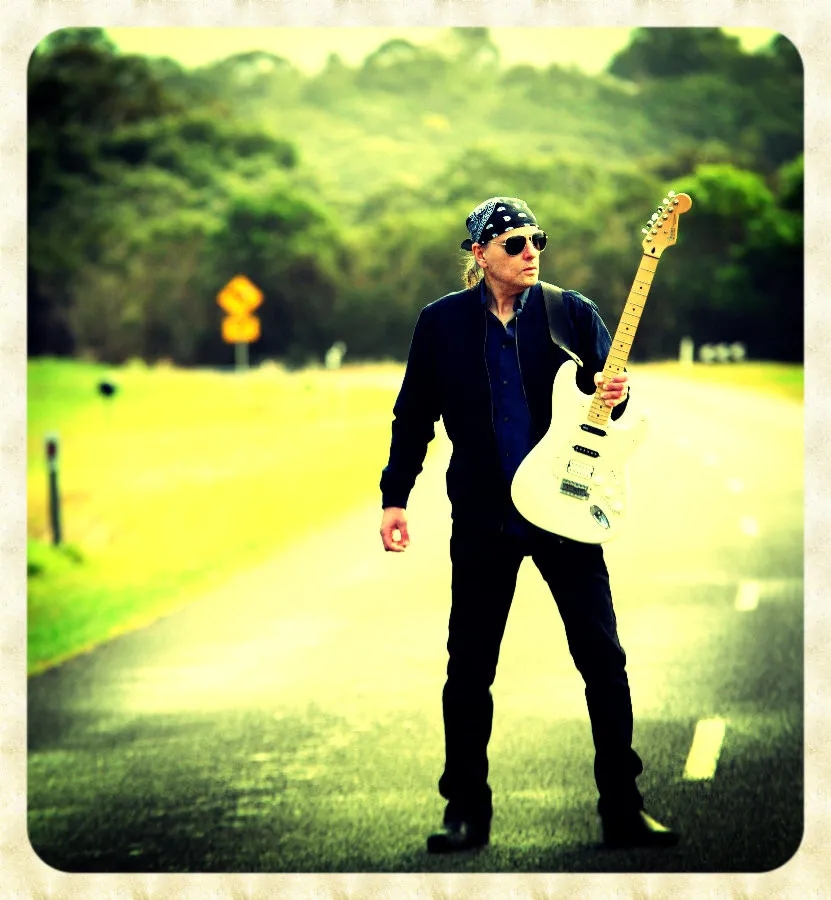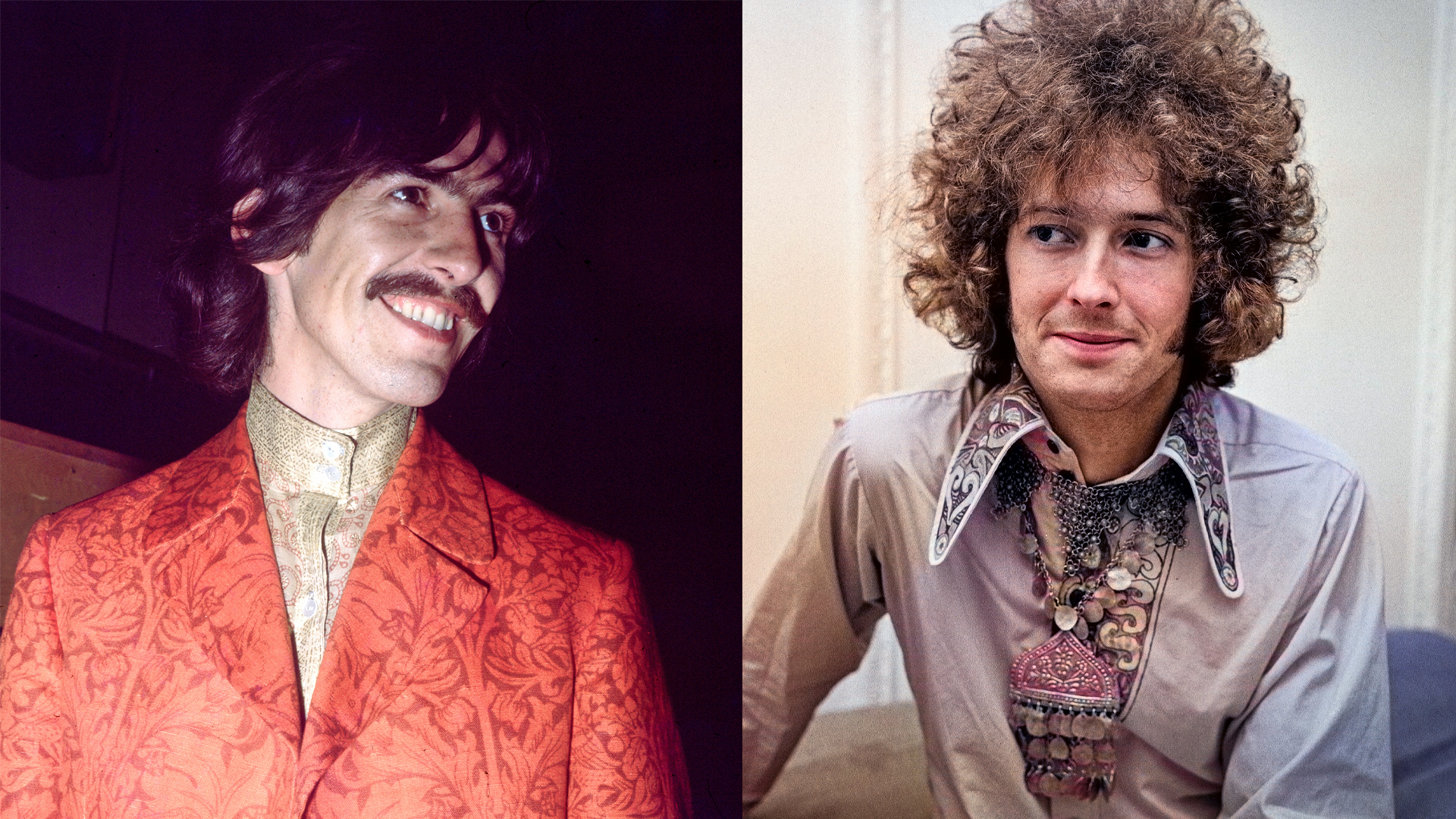“He smashes the guitar to smithereens and walks right over to me. He’s right in my face and says, ‘What the eff are you doing?’” Pete Townshend’s substitute guitarist reveals the highs and lows of his time in the Who
Atomic Rooster guitarist Steve “Boltz” Bolton was hired to play on the group’s star-studded 1989 tour — if he could survive the rehearsals
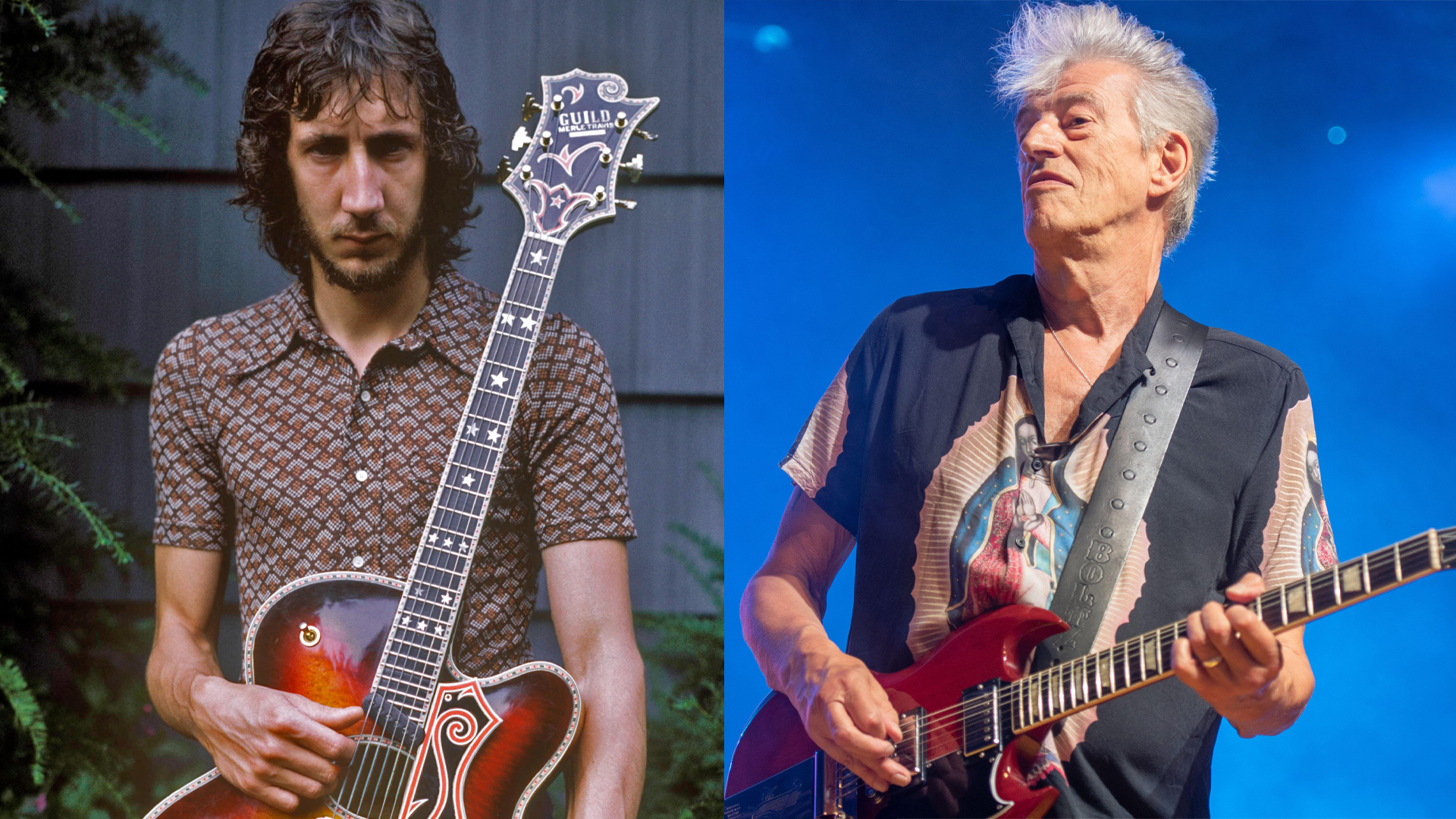
‘”One day around 1988, my phone rings and the voice down the line says ‘Boltz, it’s Pete Townshend!’” Steve Bolton about his career-changing phone call. “And I go, ‘Yeah right,’
“But he says, ‘No, don't hang up, I've got a question to ask you. Will you play lead guitar for the Who?’”
So began one of the stranger moments in the history of the Who and the career of a guitarist little known outside of England. Steve “Boltz” Bolton has performed with some of the biggest artists of the day, including Dave Gilmour, Bob Dylan, and David Bowie, and he played with British hitmaker Paul Young in the 1980s.
But Bolton’s greatest claim to fame is with Atomic Rooster, the hard rock group he joined in 1971, left in 1972 and rejoined in 2016. The group’s latest outing titled Circle the Sun to be issued this October, is their first full collection of studio recordings in over 40 years.
Despite his unfamiliarity in America, Bolton was well known in England in the early 1970s. Townshend was particularly fond of him. Bolton first caught his ear when Atomic Rooster shared the bill with the Who (along with the Faces and Mott the Hoople) in 1971 for a show at the Oval, London, where Bolton plugged his guitar into Townshend's Hiwatt stack. Bassist Pino Pallidino recalled that, while working with Townshend on his White City: A Novel solo album in 1985, the guitarist asked him about Bolton.
He says, ‘No, don't hang up, I've got a question to ask you. Will you play lead guitar for the Who?’”
— Steve Bolton
“He said Pete then got up on the studio desk in front of a full room of people and did a perfect imitation of all my moves and everything,” Bolton explains
Following the Who’s celebrated reunion at Live Aid in 1985, Townshend began preparing the group for its 25th anniversary reunion tour, dubbed The Kids Are Alright Tour. Unfortunately, the world’s most famous guitar-smasher was suffering from tinnitus and wanted another guitarist to handle the electric guitar parts for the tour while he performed acoustic guitar. For that matter, the Who would be embellished with numerous other members, bringing the quartet's number to 15.
All the latest guitar news, interviews, lessons, reviews, deals and more, direct to your inbox!
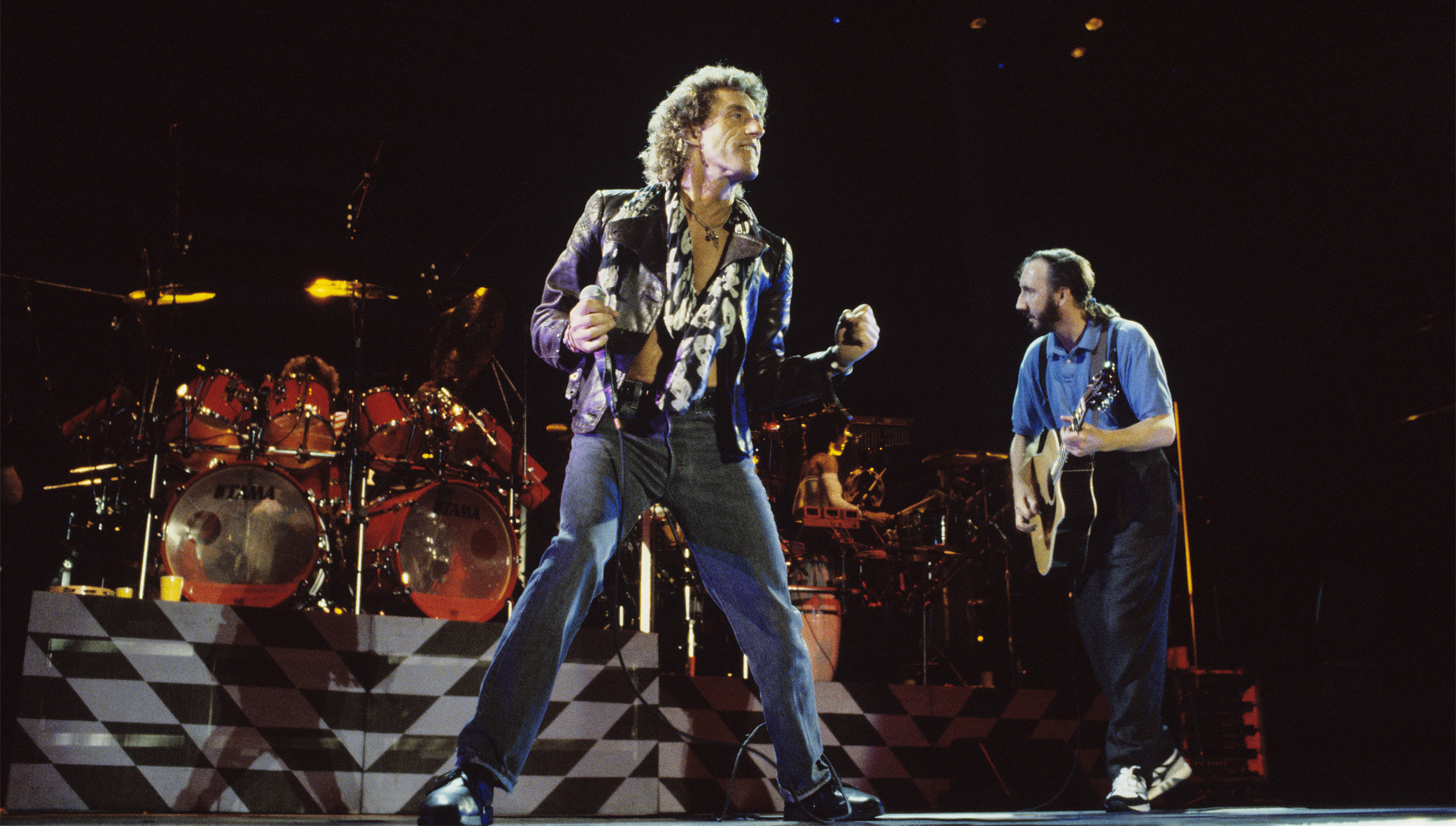
As Townshend explained on Good Morning America in 1989. "The more musicians you have, the quieter you can play. It's a bit difficult to make a big sound with an electric guitar unless it's quite loud. I'm paying the price now for playing too much loud guitar."
Enter Bolton.
“Pete said, ‘I’m a big fan of yours and have seen you with the Paul Young band quite a few times,’” Bolton says. “ ‘I recognize myself in you.’
I said, ‘Look, the guitar smashes itself!’ And Pete replies, ‘You’ve got the job!’”
— Steve Bolton
“He said, ‘There are only two people I would consider for this job: One is Joe Walsh and the other is you. Can you come over to my studio in West London for some kind of audition and we’ll run over some acoustic stuff?’”
On the day of the audition, Bolton arrived and was quickly escorted to the studio’s control room where Townshend was holding court.
“Pete asks one of his minions to get his Gibson J-200 out,” Bolton recalls. “His minion brings the case, and as Pete opens it, the bridge of the J-200 came unglued and all the strings went ‘boing,’ all over the place!
“I said, ‘Look, the guitar smashes itself!’
“And Pete replies, ‘You’ve got the job!’”
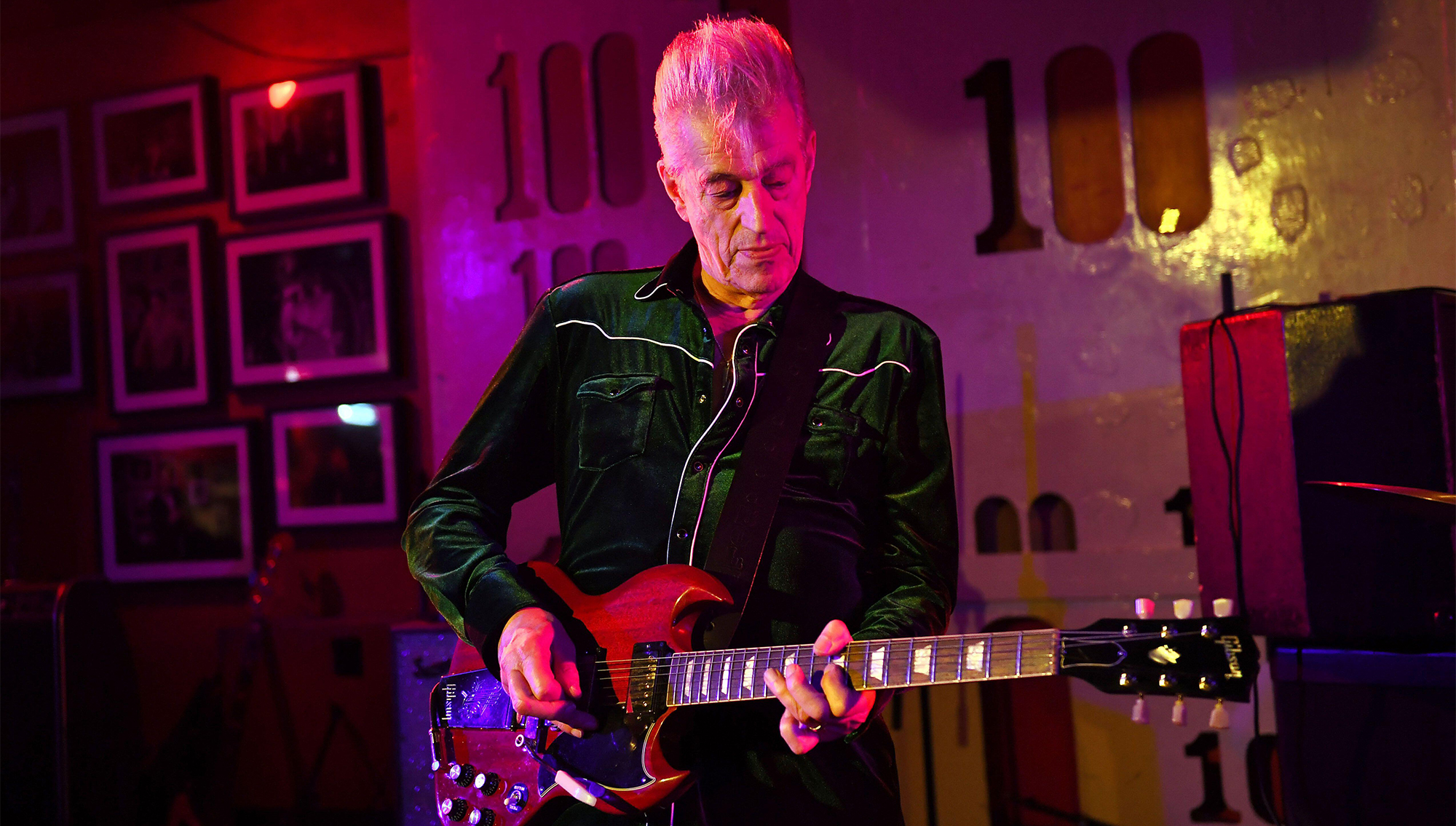
Bolton was given box full of cassettes and instructed to learn 200 songs, including the entirety of Tommy, the Who’s breakthrough 1969 rock opera. Rehearsals began without the Who present. But a few weeks in, Townshend dropped by unexpectedly to see how things were coming along. To his dismay, the sound was far too loud.
“Pete pulled me aside into another room and said, ‘You can’t play that loud. It's too loud!’” he reveals.
“My guitar tech made a few phone calls, to this company in Manchester who were making these tiny five-watt amps. But using such a small amp was a ridiculous concept so it never went any further. We just left it and I carried on with my 100-watt Mesa/Boogie one-by-12 combo.”
As the rehearsals went on, his rig grew even bigger. “By the time of the first production rehearsal in America, I was using four of those combos with extension cabinets,” Bolton says. “So it was like a double stack slaved up in the middle with an identical bunch of stuff in the middle. It was fucking louder than I'd ever been in my whole life!”
It was like a double stack slaved up in the middle with an identical bunch of stuff in the middle. It was fucking louder than I'd ever been in my whole life!”
— Steve Bolton
Bolton recalls a moment during production rehearsals where Townshend’s reputation as the angry young man of his generation was brought to bear.
“We were in this huge rehearsal room in West London, which had now become small in space due to all of the gear,” Bolton begins. “Pete brings along a bunch of minions with him, and one of them says to all of us, ‘Pete would like the band to run over ‘The Overture’ from Tommy.’”
As its title suggests, “The Overture” consists of the album’s primary themes woven together. Among them is the signature, briskly strummed acoustic guitar riff to “Pinball Wizard.” Bolton had been playing it on electric guitar when Townshend was away. But now that he was back, he assumed the guitarist would take the part on himself.
To protect Townshend’s ears, a booth had been built in the studio for him. “It was like a garden shed, with a sound screen and a window,” Bolton explains. “It had two speakers on the wall and a picture of the Queen. He's in there with a Takamine acoustic.”
When it came time for the “Pinball Wizard” riff, there was absolute silence.
“There's nothing, because I'm not playing, and he’s not playing,” Bolton says. “I look diagonally across the room, and Pete's glaring at me. He shouts, ‘Stop!’ And everyone stops.
“He then smashes the Takamine to smithereens, kicks over the front of the shed and walks right over to me. He’s right in my face and says, ‘What the fuck are you doing?’
Pete is a very complex character. But that's what makes him who he is.”
— Steve Bolton
“I pulled him by his lapels and said, ‘Listen — I've been covering for you while you've been swanning around America,” Bolton continues. “I thought, because you were here and you've got your guitar, you would be doing that bit. That's why I didn’t play.’
“And do you know what he said to me? ‘It’s my fucking band. I can do whatever I like!’”
Despite the problems, Bolton considers his Who stint one of his most memorable and most cherished of his career. His relationship with Townshend remains a constant today.
“Pete is a very complex character,” he says. “But that's what makes him who he is.”
The Who — Townshend and singer Roger Daltrey — are currently performing on their farewell tour.
Joe Matera is an Italian-Australian guitarist and music journalist who has spent the past two decades interviewing a who's who of the rock and metal world and written for Guitar World, Total Guitar, Rolling Stone, Goldmine, Sound On Sound, Classic Rock, Metal Hammer and many others. He is also a recording and performing musician and solo artist who has toured Europe on a regular basis and released several well-received albums including instrumental guitar rock outings through various European labels. Roxy Music's Phil Manzanera has called him "a great guitarist who knows what an electric guitar should sound like and plays a fluid pleasing style of rock." He's the author of two books, Backstage Pass; The Grit and the Glamour and Louder Than Words: Beyond the Backstage Pass.

